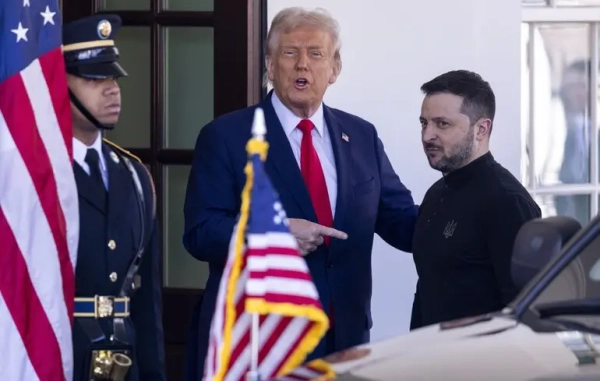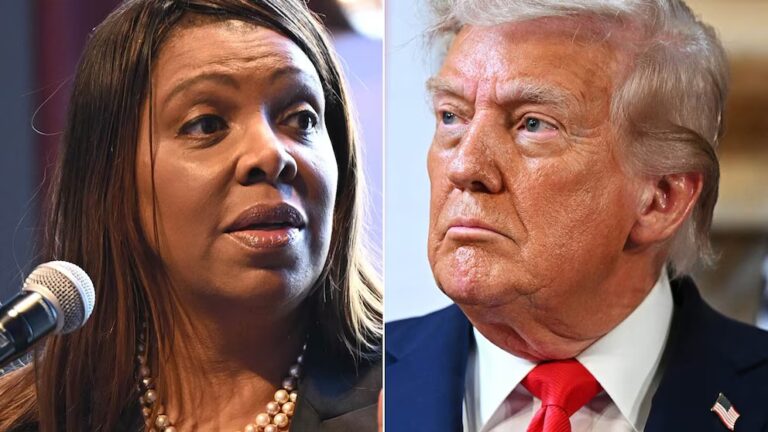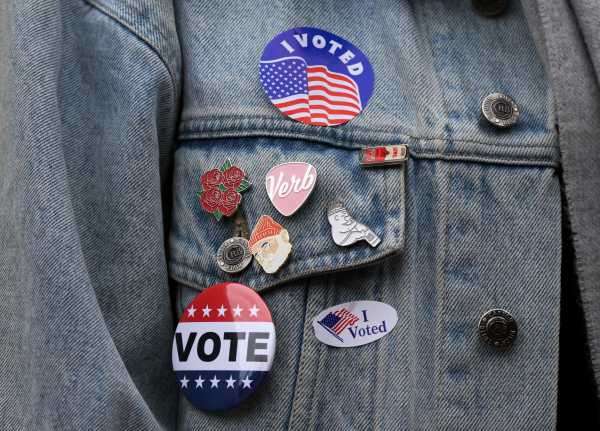
College students are highly motivated to vote, but they say they’re less confident in the legitimacy of the election — and many are likely to doubt the results.
That’s according to a new survey from the Knight Foundation, a nonprofit that funds research and projects to foster more engaged communities. The survey was done through College Pulse, a research agency focused on college students.
And though the findings show Democratic nominee Joe Biden is clearly the preferred candidate among those polled, respondents aren’t excited about him — rather, they support him because they dislike President Donald Trump.
The survey, conducted from August 9 to 12, polled 4,000 students enrolled in four-year universities. The results paint a picture of an increasingly engaged electorate of young people who harbor mistrust of political parties and traditional election systems. The findings reflect a widening gap — evidenced in the older voter base of both Biden and Trump — between young people and the legacy parties and electoral structures they feel aren’t working for them.
“It really points to cracks in our democratic institutions and processes at a pretty high level,” said Evette Alexander, director of learning and impact at the Knight Foundation.
“If we have significant parts of the population … doubting our democratic process, it leads them away from participating, it leads them away from being engaged citizens, it leads them away from being informed,” she added.
Around 37 percent of students surveyed leaned toward the Democratic Party, while 43 percent identified as independent; only around 12 percent leaned toward the Republican Party. That’s a breakdown Alexander said is representative of the college population based on the sample size. Researchers weighted respondents for race and gender to ensure those categories were also representative.
Even before the coronavirus pandemic, a majority of Americans, 59 percent, didn’t feel confident in the honesty of the nation’s elections — in part thanks to the legacy of foreign interference in the 2016 election. That’s more than most other major democracies and on par with Lithuania and Turkey.
That confidence has been further shaken by an ongoing fight over the US Postal Service, which will be charged with handling a higher-than-usual influx of mail-in ballots due to the pandemic, and concerns — largely ginned up by President Trump, without evidence — over the integrity of mail-in voting itself.
That’s reflected among young people: More than half of the students surveyed said they think the November election won’t be administered well, and only half said they believe the presidential race will be conducted in a fair and transparent way. More than 80 percent said they believed special-interest groups have more influence over elections than voters do.
Nearly half of college students said problems at polling places, low voter turnout, evidence of foreign interference, and the winner of the election losing the popular vote would make them have “major doubts” about the fairness of the election. Women were more likely than men to harbor those doubts.
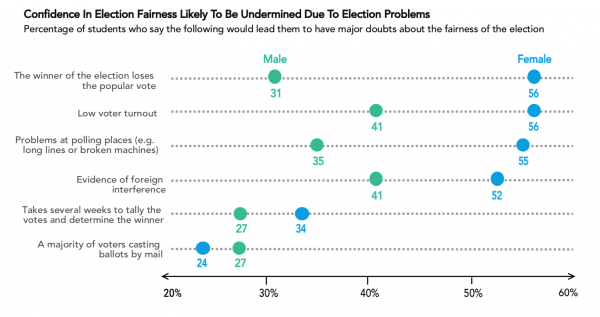
College students’ views also reflect the partisan divide over mail-in voting seen at the national level: Only 17 percent of Democratic students said they would have major doubts about the fairness of the election if most votes were cast by mail, while 57 percent of Republican students did.
In total, 53 percent of students said they’d cast a ballot by mail — a surprising majority likely driven by the threat of coronavirus, Alexander said, given that young people usually don’t vote by mail.
College-aged voters favor Biden, but not because they like him
Despite their mistrust of the country’s election systems, more than 70 percent of students said they are “absolutely certain” they’ll vote in November. That largely cuts across racial, political, and gender lines, indicating a widespread interest in heading to the polls.
Students cited Covid-19 and race relations as the most important issues facing the country today, reflecting ongoing fears about the coronavirus pandemic in the US and the increased scrutiny on racial equity and justice due to widespread Black Lives Matter protests in the wake of George Floyd’s death in Minneapolis in May.
Around 70 percent said they’d vote for Biden, compared with only 18 percent who said they’d cast a ballot for Trump. But asked whether they have a favorable view of the former vice president, only around half agreed.
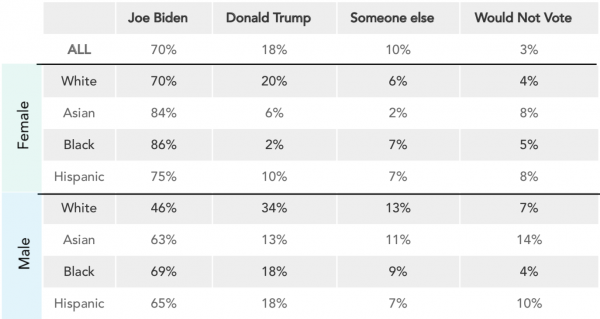
“I think we can read between the lines there that for students, a vote for Biden is a vote against Trump,” Alexander said.
That lack of enthusiasm extends to the parties as well: Only 26 percent of students had a positive view of the Republican Party, and only 51 percent had a positive view of the Democratic Party. The findings on the presidential candidates and political parties are illustrative of a disillusionment with national politics from young people, Alexander said.
Instead, young people are turning to other forms of activism such as participating in protests, contacting elected officials, and discussing issues with friends and family. Participation in local elections is “extremely low” among college students, the report found, but most still think local elections are one of the most effective ways to bring about change.
That paradox may have something to do with the way college students get their political news, Alexander said. Information channels about local politics rarely reach college-aged voters — who primarily get their news by scrolling through social media — let alone voters under 40.
That’s an indicator that candidates and organizations that are social-media savvy should work to mobilize young people by reaching them where they already are.
“Look, these students are interested in participating outside of national politics. For some, national politics isn’t delivering on its promises, at least to them right now,” Alexander said. “There’s an opportunity — and perhaps a mandate — for local issues to become more front and center, where people’s eyes and attention are.”
New goal: 25,000
In the spring, we launched a program asking readers for financial contributions to help keep Vox free for everyone, and last week, we set a goal of reaching 20,000 contributors. Well, you helped us blow past that. Today, we are extending that goal to 25,000. Millions turn to Vox each month to understand an increasingly chaotic world — from what is happening with the USPS to the coronavirus crisis to what is, quite possibly, the most consequential presidential election of our lifetimes. Even when the economy and the news advertising market recovers, your support will be a critical part of sustaining our resource-intensive work — and helping everyone make sense of an increasingly chaotic world. Contribute today from as little as $3.
Sourse: vox.com

